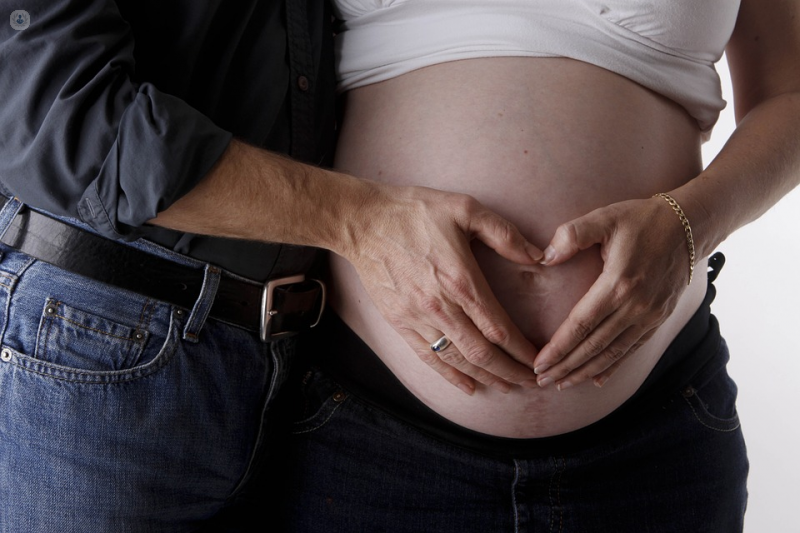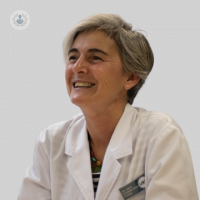¿Qué relación hay entre la coagulación y la fertilidad?
Written by:Coagulation problems are in the spotlight in the field of fertility, especially when we encounter patients who have problems of implantation failure or repetitive abortions.
In recent years, anticoagulant and antiaggregant treatments have been used in a virtually indiscriminate way to manage this group of patients, but more and more studies advocate a much more conservative treatment. Before delving deeper into this topic, we should define what we mean by implantation failure and repeat abortion.
What is implantation failure
According to the Spanish Society of Fertility , implantation failure is the absence of gestation after transfer , on at least 3 occasions, 3 embryos of good quality in a cycle of IVF or donation of oocytes. However, considering that a smaller number of embryos are currently transferred in each cycle of FIV, other authors1 define the implantation failure as the absence of gestation after at least 3 consecutive cycles of IVF with the transfer of 1 or 2 embryos high quality.

What are implantation abortions?
We talk about repeat abortions when a woman has had three or more miscarriages before the 20th week of pregnancy with the same male partner. Although, again, there is a discrepancy between the classical definition of repeat abortions and clinical behavior, because in patients with fertility problems, the study of repeat abortions is usually performed after 2 repeated abortions instead of 3.
What are coagulation disorders?
The mechanism of coagulation acts as a kind of "cascade" in which multiple coagulation factors are involved; the alteration in the function or levels of one or more of these factors will affect the functioning of the same. Clotting disorders are known as thrombophilia and can be classified as inherited or acquired.
Hereditary thrombophilias are those that are linked to genetic alterations; the most frequent are Leiden factor V mutation, factor II mutation, antithrombin deficiency, protein C deficiency, protein S deficiency and methyltetrahydrofolate reductase (MTHFR) gene mutation.
Among the acquired thrombophilias, the most important because of their frequency and their clinical implication are the antiphospholipid syndrome (SAF) and resistance to activated protein C not associated with Leiden's Factor V.
Relationship between coagulation disorders and fertility
In the last 20 years, multiple studies have been published on a possible association of coagulation disorders with pathologies during pregnancy, mainly repetitive abortions, placental abruption or retarded intrauterine growth. Lately these studies also include their possible effect on failures of embryo implantation or absence of pregnancy after fertility treatments. In some cases, studies have shown significant relationships, and in others not.

In patients with hereditary thrombophilias but no previous thrombotic history and repeat abortions, there are no randomized clinical trials on the efficacy of heparin treatment. This means that, to date, several scientific societies do not recommend its use in these patients.
In the case of antiphospholipid syndrome (acquired thrombophilia of autoimmune origin), defined as having at least one clinical and laboratory criteria (arterial and / or venous thrombosis, unfavorable obstetric results, presence of lupus anticoagulant, anticardiolipin or anti-β 2 glycoprotein), there is clinical evidence demonstrating that treatment with anticoagulants (low molecular weight heparin) and antiaggregants (acetylsalicylic acid) improves obstetric outcomes.
In women with diagnosed thrombophilia and 3 or more previous failed IVF, some studies have observed a positive effect of heparin. This effect, however, is not significant without known thrombophilia. Although the main effect of heparin is to act as an anticoagulant, some authors2 argue that it is possible that it may have an anti-inflammatory action and favor implantation. However, this action is difficult to quantify and, therefore, there is not enough scientific evidence to recommend it in a generalized way.
All these reflections lead us to think that we still have much progress in this field, but that the indication of treatment with anticoagulants and antiaggregantes must be carefully evaluated by hematologists experts in fertility and always based on published scientific evidence. For this reason, at URH García del Real, we have the support of a hematologist specialized in fertility with many years of experience in this field.
1. Simon, A. & Laufer, N. Repeated implantation failure: clinical approach. Fertile. Steril. 97, 1039-1043 (2012).
2. Nelson, S. M. & Greer, I. TO. The potential role of heparin in assisted conception. Hum. Reprod. Update 14, 623-645 (2008).



